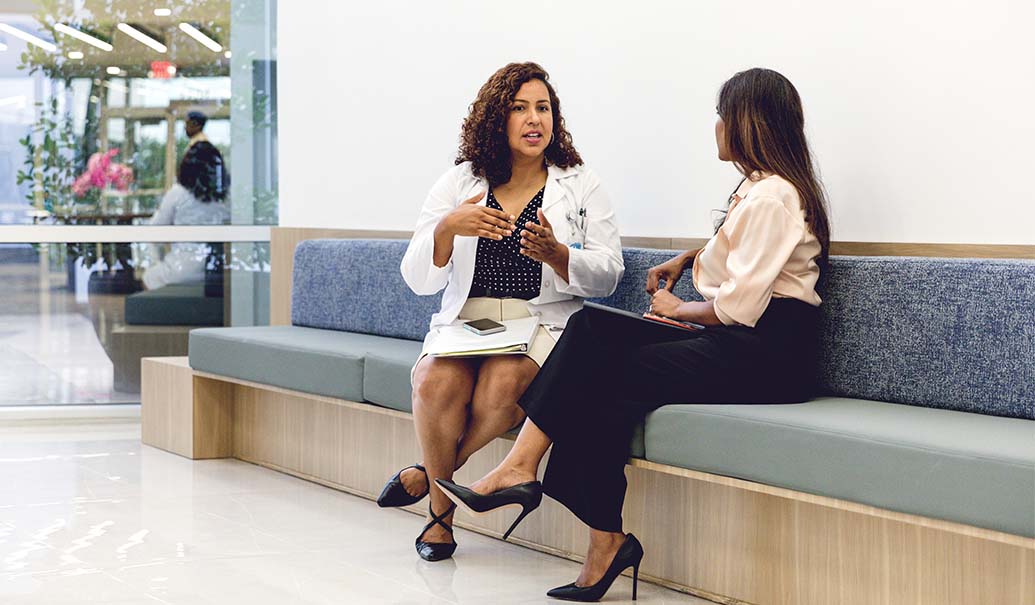Throughout the process of bringing a new drug to market, a pharmaceutical company’s medical affairs group will play an instrumental role in providing education to physicians, as well as capturing medical insights on developing therapies and unmet needs. At the forefront of medical affairs are field teams of medical science liaisons (MSLs), which serve as the external scientific face of the company. MSLs will inform healthcare providers (HCPs) of landscape changes and provide them with in-depth understanding of new therapies, while also sharing with their company the perspectives of the medical community that impact product strategy and help in clinical trial design.
Assessing the value MSLs bring to a company increasingly relies on surveying these HCPs to understand how effective their engagements with the MSLs have been. For one top-20 pharma company, a decision to design comprehensive market research studies produced not only feedback on their MSLs, but also data on key opinion leader (KOL) awareness and understanding of scientific concepts. This data would ultimately prove crucial for the company as they entered the drug approval process with the FDA.
The challenge
Measuring the effectiveness of MSLs is notoriously difficult. Unlike their field counterparts in sales, impact cannot—and should not—be measured in prescriptions or other measures of ROI. While many companies assess customer satisfaction with MSLs, an executive director of one of the company’s regional liaison teams wanted to push far beyond satisfaction.
“Usually, these kinds of surveys show trends rather than more conclusive evidence. We think that our approach provides better, more conclusive data.”
Medical affairs director
The solution
The company’s MSL team lead partnered with ZS to develop a series of tests, designed to assess the true knowledge level of the KOLs across scientific content important to the team.
To bring a high level of sophistication to the market research study design, the director turned to ZS Medical Affairs. ZS’s expertise and refined strategies ensured that the surveys were streamlined, easy to understand, and engaging for the respondents. The team’s surveys were primarily focused on two topics:
- Assessing how well their MSLs were educating the community
- Tracking KOL awareness and perception of key scientific issues
Questions were asked in a variety of ways which allowed the MSL team to study concepts from several different angles in a more conclusive manner.
Importantly, as the team was designing the market research study, they invested the time to seek input from cross-functional stakeholders throughout the organization to gain an in-depth understanding of the key scientific concepts to test. This allowed ZS to ask more challenging questions that dug deeper into what the physicians and KOLs truly knew and understood. ZS was then able to help design innovative approaches such as mini-quizzes that helped the MSL team identify where there were educational gaps and misperceptions.
“Usually, these kinds of surveys show trends rather than more conclusive evidence,” the director said. “It’s just the nature of market research. But we think that our approach provides better, more conclusive data.”
The impact
Besides providing a more thorough base of medical field information used to address educational gaps in field in the future, the surveys managed to capture insights that proved beneficial to the high-stakes process of gaining FDA approval. During negotiations on a potential new product, the FDA had raised concerns about awareness in the scientific community regarding a certain end point. One of the company’s double-blind surveys, conducted by ZS, showed a different interpretation.
“We had prioritized this topic in our market research because we knew the awareness of this endpoint would be important to multiple stakeholders,” the director noted.
When a pharma company submits a package for consideration to the FDA, it is crucial that they are prepared with solid evidence and data to answer the questions that come during the negotiation. Due to the quality of the surveys the company had conducted, they had the insights on hand to strengthen their argument and change the FDA’s perception of the scientific community’s awareness and understanding.
“Having a good partner is key,” the director said. “ZS does their homework, really guiding us with their expertise in market research and deep level of understanding of our issues. We guide ZS in terms of what it is we really want to know, so if we’re specific on that front, then it’s about having a partner adding their expertise to optimize the questions.”












